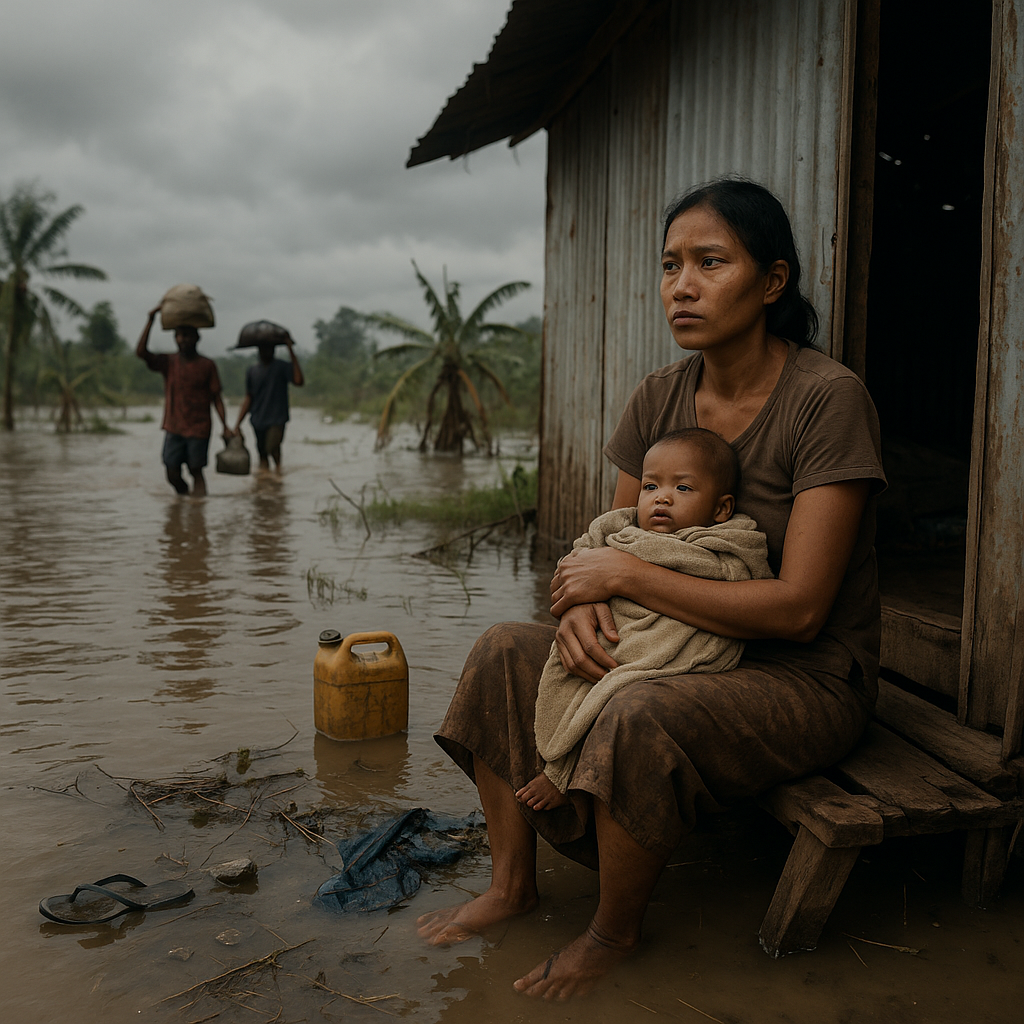UNDP Calls for Renewed Global Effort to End Poverty and Protect Families
Even more striking, 650 million people face two or more overlapping climate hazards, exacerbating their vulnerability and limiting their ability to recover.

On the occasion of the International Day for the Eradication of Poverty, the United Nations Development Programme (UNDP) has renewed its global commitment to ending poverty in all its forms and advancing shared prosperity. The 2025 theme, "Ending social and institutional maltreatment by ensuring respect and effective support for families," places emphasis on protecting the dignity, resilience, and unity of families as the foundation of sustainable societies.
The observance serves as a reminder that eradicating poverty goes beyond economic growth — it requires addressing inequality, strengthening social systems, and empowering communities to withstand the growing impacts of climate change.
2025 Global MPI Reveals Climate and Poverty Intersect
According to the newly released 2025 Global Multidimensional Poverty Index (MPI), produced jointly by the UNDP and the Oxford Poverty and Human Development Initiative (OPHI), nearly 80 percent of the world's multidimensionally poor people—approximately 887 million individuals—live in areas exposed to at least one major climate hazard such as high heat, droughts, floods, or severe air pollution.
Even more striking, 650 million people face two or more overlapping climate hazards, exacerbating their vulnerability and limiting their ability to recover. The report underscores that poverty cannot be understood solely as a lack of income; it is a multifaceted condition that also includes limited access to education, healthcare, housing, sanitation, and safety nets.
"This new MPI matters because it allows us to see poverty as people live it — income poverty and lack of choices compounded by climate risk and inequality," the UNDP statement noted.
The Growing Link Between Climate Change and Poverty
The report highlights an alarming correlation between climate vulnerability and persistent poverty, especially in low- and middle-income countries. Regions in Sub-Saharan Africa, South Asia, and parts of Latin America are among the hardest hit. Climate-induced disasters, such as prolonged droughts or rising sea levels, often wipe out livelihoods, destroy infrastructure, and push millions deeper into poverty.
Experts warn that as climate change accelerates, poverty reduction efforts risk being reversed unless governments integrate climate resilience into social and economic policies.
"Poverty today is not just about low income; it's about living without adequate support systems in a world of increasing uncertainty," a UNDP official explained. "Climate justice must be central to poverty eradication."
Building Trust and Resilient Institutions
UNDP emphasized that ending poverty also depends on strong, trustworthy institutions that deliver effective social protection and quality public services. By supporting governments to build transparent and inclusive systems, the agency helps ensure that every family has access to education, healthcare, employment, and protection against shocks.
This includes expanding social safety nets, improving governance frameworks, and empowering communities to shape their own futures through participatory development.
UNDP's efforts also focus on strengthening climate resilience, helping countries transition to low-carbon economies, and ensuring that adaptation measures benefit the most marginalized.
"We work with countries to build institutions that people can trust and that help families through social protection, quality services, and climate action," the statement said.
Families at the Heart of Sustainable Development
This year's theme underscores that families are central to social cohesion and progress. By supporting families — particularly those facing intergenerational poverty — societies can break cycles of deprivation and inequality.
UNDP advocates for family-centered policies, including parental support, accessible childcare, gender equality initiatives, and inclusive education, which help strengthen both the economic and emotional fabric of communities.
"Ending poverty means ensuring that every family can live with dignity, security, and the power to shape its own future," the agency reaffirmed.
A Defining Promise of Our Time
As the world nears the 2030 Sustainable Development Goals (SDG) deadline, progress on SDG 1: No Poverty remains uneven. Despite significant gains in the early 2000s, recent crises—including COVID-19, conflicts, economic shocks, and climate disasters—have stalled or reversed improvements in many regions.
UNDP's renewed call for action emphasizes collective responsibility: governments, international organizations, the private sector, and civil society must collaborate to ensure that the fight against poverty remains inclusive, data-driven, and resilient to global challenges.
"Ending poverty in all its forms, everywhere, remains a defining promise of our time. It is one we can keep—if we ensure that every person, every family, and every community can live with dignity," UNDP concluded.
ALSO READ
-
ILO Warns Climate Change Is Transforming Jobs Across Arab States, Calls for Green Transition
-
Gender Equality as Smart Investment: UNDP’s Roadmap for Inclusive Development
-
Former Belgian PM Alexander De Croo Tapped to Lead UNDP
-
Debunking Tobacco Lies: UNDP–WHO Reveal the Real Costs of a Global Addiction
-
Manipur Governor graces valedictory session of Indian Himalayan Region Climate Change Conclave









